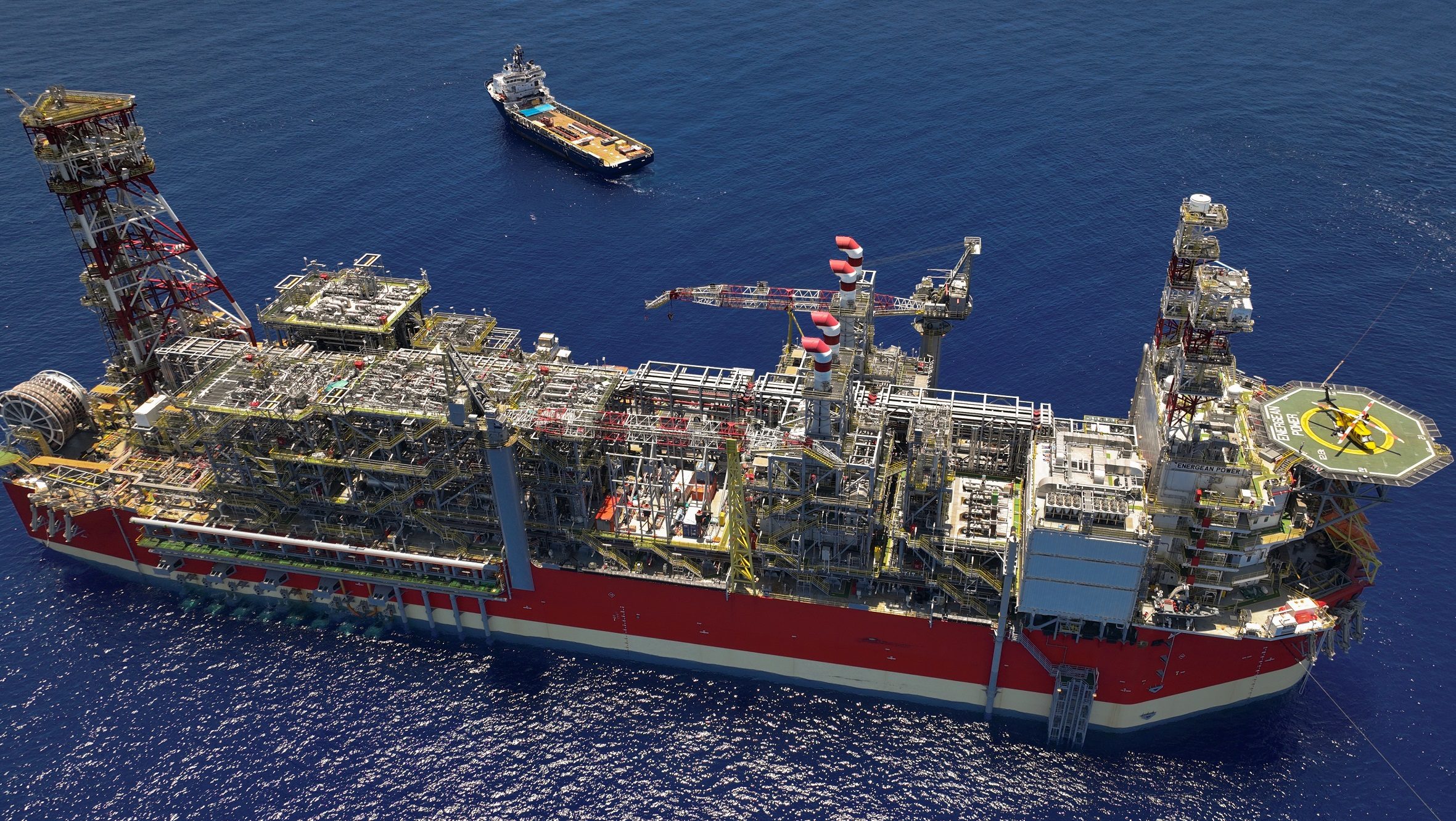Israel and Lebanon’s Precarious To-and-Fro on Maritime Border Deal
Rows over the demarcation of a boundary in the eastern Mediterranean and revenue from a potential Lebanese gas field that extends into Israeli waters threaten to scupper years of negotiations led by the US
Warring neighbors Lebanon and Israel are striving to sign an agreement demarcating their shared maritime border, ending years of delicate negotiations under the auspices of the US and potentially clearing the way for both countries to begin new gas exploration.
Lebanon and Israel are officially at war and their shared land border is patrolled by the United Nations Interim Force in Lebanon (UNIFIL).
The two countries have been locked in a maritime border dispute in part over coastal gas drilling rights in the Mediterranean Sea. Both have claimed about 860 square kilometers there as being within their exclusive economic zones (EEZ).
US envoy Amos Hochstein is attempting to broker a deal that specifically pertains only to resolving this dispute in the eastern tip of the Mediterranean, and is not working to an agreement that might lead to diplomatic or economic normalization between the two sides.
The draft deal proposed by Hochstein aims to settle competing claims over the offshore Qana gas field. Under the US-brokered plan, Lebanon would have control over the area north of Line 23 on the sea map, including most of the Qana offshore natural gas field, while Israel would remain in control of the Karish gas field south of the line.
Qana partially extends into Israeli waters and Israeli Prime Minister Yair Lapid has said Israel will cede the entire field to Lebanon, but is entitled to a share of the revenue from any gas that is found there.
This holiday season, give to:
Truth and understanding
The Media Line's intrepid correspondents are in Israel, Gaza, Lebanon, Syria and Pakistan providing first-person reporting.
They all said they cover it.
We see it.
We report with just one agenda: the truth.


Beirut has rejected Jerusalem’s claims to any share of the revenue, although that could be circumvented by Israel receiving profits directly from any foreign energy company that is expected to operate under a Lebanese license to drill for natural gas at Qana.
But now the back-and-forth indirect talks between the two countries on the long-running border dispute have reached an impasse. While both sides initially welcomed the latest US proposal – whose contents remain undisclosed – Lebanon has since demanded some changes. Israel swiftly rejected the Lebanese demand for what it called “substantial changes.”
According to reports, Lebanon does not accept the floating boundary five kilometers that Israel has demarcated with buoys off its northern coast near Kibbutz Rosh Hanikra.
The stalemate jeopardizes the possibility of reaching a deal in the near future and could escalate tensions between the two countries. Potentially heightening those tensions, Israel on Sunday began testing its pipeline at Karish. Lebanon had warned that such a move would not go unanswered if it were carried out before the two sides reached a deal.
Hassan Nasrallah, the head of Lebanon’s influential Iran-backed Hizbullah organization, has threatened on several occasions to strike at Israeli drilling operations, claiming they infringe on Lebanon’s maritime rights.
In July, Hizbullah flew three unarmed reconnaissance drones in the skies above Karish after Energean, the international exploration company developing the field, sent a production and storage vessel to the site. The Israel Defense Forces shot down all three aircraft.
The parties revived talks on the maritime border in 2020, but the process was stalled by Lebanon’s demand that the map used by the UN in the talks be modified.
The negotiations resumed in early June after Israel moved a production vessel near the Karish field.
Desperate Lebanon, which is in the throes of its worst-ever economic crisis, sees the Qana field as a way to help end its financial strife.
Lebanese experts say gas production could start within three years if commercially viable reservoirs are found. But the Arab country is considered an investment risk due to its widespread corruption and political instability, with delays almost guaranteed.
For Israel, which has experience developing gas fields over the past decade, striking a deal with Lebanon would raise its profile as a growing regional energy powerhouse.
Israel, Egypt and the European Union signed a tripartite gas supply deal in June as the EU seeks to make up the shortfall in energy supplies from Russia following its internationally condemned invasion of Ukraine. Under the terms of the deal, Egypt would increase the supply of gas that it already ships to Europe after receiving it from Israel.

